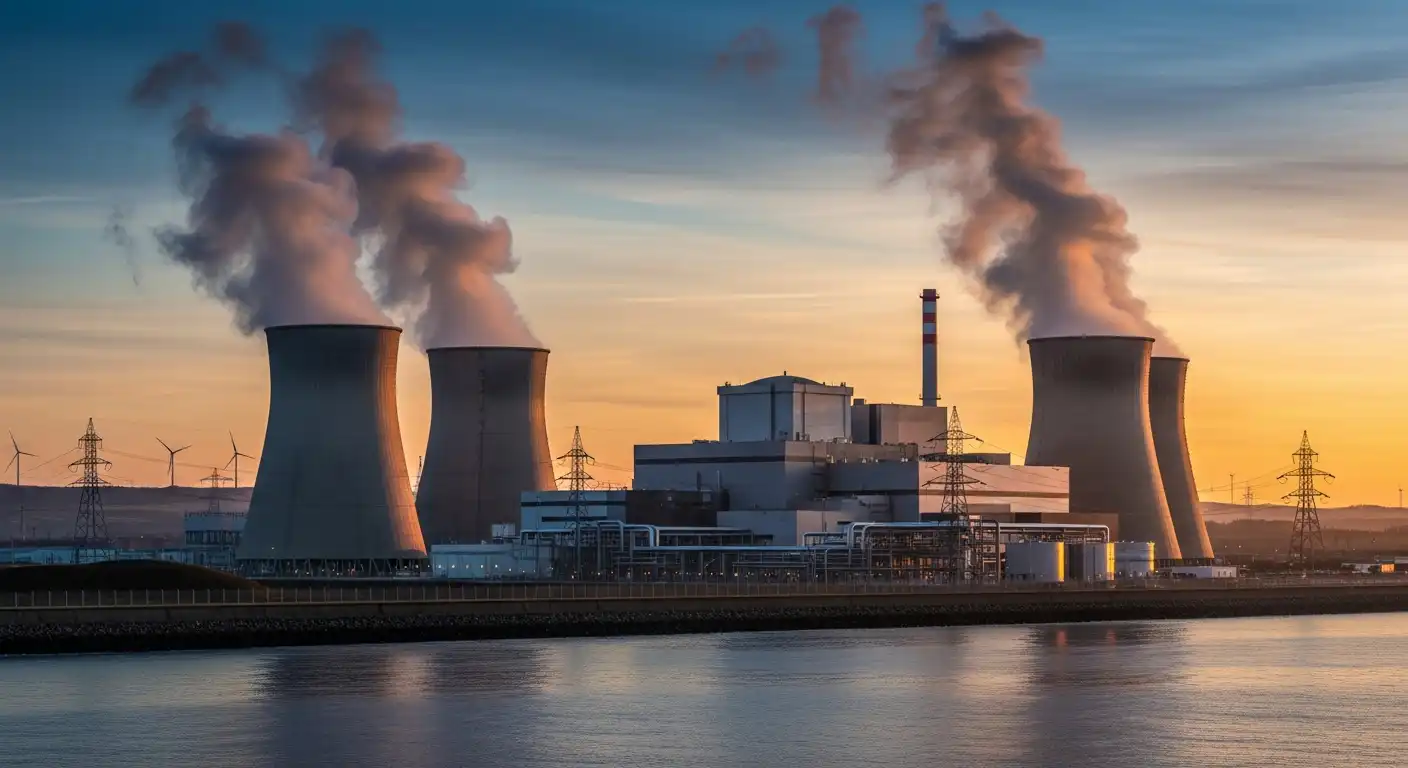In the ongoing global discourse on energy sources, nuclear energy occupies a unique and often controversial position. With its potential to generate vast amounts of electricity while producing minimal greenhouse gas emissions, nuclear energy presents a compelling solution to the pressing challenges of climate change and energy security.
Yet, it raises concerns about safety, waste disposal, and potential catastrophic accidents. As the world strives for a sustainable energy mix, the debate around nuclear energy continues to illuminate the complexities and opportunities it offers for shaping our energy future.
Nuclear Energy: Fissioning the Atom for Power
At the heart of nuclear energy lies nuclear fission, in which the nucleus of an atom is split to release a tremendous amount of energy. This energy is harnessed to generate heat, which produces steam and drives electricity turbines. Unlike fossil fuels, nuclear energy doesn’t produce direct carbon emissions during operation, making it an attractive option for reducing greenhouse gas emissions and addressing climate change.
The potential of nuclear energy is substantial. A single uranium fuel pellet, about the size of a fingertip, can produce the energy equivalent of a ton of coal or several barrels of oil, highlighting its energy density and efficiency.
Low Carbon Emissions: A Climate-Friendly Alternative
One of the most compelling advantages of nuclear energy is its low carbon emissions profile. As the world grapples with the urgent need to curb greenhouse gas emissions and limit the rise in global temperature, nuclear power offers a reliable and dispatchable source of electricity that can operate without emitting the pollutants associated with fossil fuels.
Nuclear power plants generate electricity around the clock, providing a stable and continuous supply of power that complements the intermittent nature of renewable energy sources like solar and wind. This reliability makes nuclear energy a potential bridge to a more sustainable energy mix while renewable technologies continue to advance and expand.
Safety and the Specter of Risk
Despite its potential, nuclear energy is not without its challenges and risks. The specter of accidents like the Chornobyl disaster in 1986 and the Fukushima Daiichi incident in 2011 serves as a reminder of the catastrophic consequences that can result from nuclear reactor failures. Ensuring the safety of nuclear power plants and addressing public concerns about their potential risks is essential for fostering public trust and acceptance.
Modern nuclear power plants incorporate stringent safety measures, advanced reactor designs, and redundant systems to minimize the likelihood of accidents. Additionally, stringent regulatory frameworks and international cooperation contribute to ensuring the secure operation of nuclear facilities.
Waste Management: The Nuclear Dilemma
One of the most debated aspects of nuclear energy is managing radioactive waste. Nuclear power plants produce spent fuel that remains radioactive and hazardous for thousands of years. Finding a safe and sustainable solution for nuclear waste disposal is a critical challenge that must be addressed.
Proposed solutions range from deep geological repositories to advanced reprocessing technologies that can extract additional energy from spent fuel and reduce the volume of waste. Developing effective waste management strategies is crucial for mitigating the long-term environmental impact of nuclear energy.
The Promise of Advanced Technologies
As technology evolves, so does the potential of nuclear energy. Advanced reactor designs, such as small modular reactors (SMRs) and molten salt reactors (MSRs), offer innovative solutions to enhance safety, increase efficiency, and reduce waste. SMRs are designed to be modular, scalable, and potentially easier to deploy in various locations, expanding access to nuclear energy for a broader range of communities.
MSRs operate with a different fuel type and can potentially mitigate some of the waste and safety concerns associated with traditional reactors. These advancements underscore the dynamic nature of nuclear energy research and development.
The Road Ahead: Navigating Complexities and Choices
As the global community grapples with the dual imperatives of energy security and environmental sustainability, nuclear energy is a contentious yet essential component of the energy conversation. Balancing the benefits of low-carbon electricity generation with concerns about safety, waste management, and public perception requires a holistic and informed approach.
The road ahead necessitates continued investment in research and development to advance reactor technologies, improve safety measures, and find innovative solutions to the challenges associated with nuclear energy. Policymakers, scientists, and the public must engage in informed discussions about the role of nuclear energy in the transition to a sustainable energy future.
Conclusion
The debate surrounding nuclear energy encapsulates the complex energy security, environmental protection, and technological progress equation. While it presents undeniable benefits regarding low carbon emissions and energy density, it also demands rigorous safety measures, responsible waste management, and transparency.
As the world moves forward, nuclear energy should be considered part of a comprehensive energy strategy that combines the strengths of various sources, including renewables, to meet the growing energy demands while addressing climate change. The journey to a cleaner and more sustainable energy future is not paved with a single solution but a tapestry of choices, innovations, and collaborations. Navigating this intricate landscape requires a willingness to engage in open dialogue, embrace advancements, and make informed decisions that reflect our collective commitment to a brighter and greener tomorrow.





